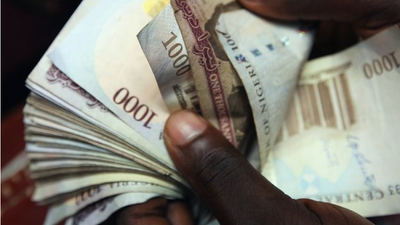‘Child soldiers are boys and girls we collectively failed to protect’ – UN envoy – An upsurge in global conflicts and brutal war tactics continues to make children extremely vulnerable to recruitment and use by armed groups, the United Nations warned today, appealing to the international community to take greater responsibility for the boys and girls used as child soldiers or risk failing to protect them.
“It is now our common responsibility to ask for urgent action to end grave violations against children and to dedicate the necessary attention and resources to reach our objective,” said Leila Zerrougui, the Special Representative of the Secretary-General for Children and Armed Conflict, in a press release marking the International Day against the Use of Child Soldiers, observed every 12 February since 2002.
“I invite everyone to start thinking about child soldiers as boys and girls we collectively failed to protect,” she added.
According to the UN, tens of thousands of boys and girls are associated with armed forces and groups in conflicts in more than 20 countries around the world. In the most recent annual report of the Secretary-General on children and armed conflict, 56 of the 57 parties to conflict identified for grave violations against children are named because they are recruiting and using child soldiers.
Ms. Zerrougui underscored that children are sent to the frontlines as combatants, but many are also used in functions that put their lives in danger, such as cooks, porters, spies and informants. During their association with armed groups or forces, children are exposed to high levels of violence. Moreover, when they are captured or arrested for alleged association with armed groups, too often children are not treated primarily as victims and denied the protection guaranteed by international norms and standards of juvenile justice.
“We still face huge challenges to protect children in times of war, but our work and advocacy has led to an emerging consensus among the world’s nations that boys and girls do not belong in national security forces in conflict or in any armed group,” said Ms. Zerrougui.
In 1996, the Special Representative’s mandate was created following the realization that children were the primary victims of armed conflict. Twenty years later, Ms. Zerrougui said the international community’s engagement has resulted in a strong framework and concrete tools to engage with parties to conflict and address the violations committed against children during conflict.
In 2014, the campaign Children, Not Soldiers was launched by the Special Representative and the UN Children’s Fund (UNICEF) to support the remaining eight states – Afghanistan, Chad, Myanmar, Somalia, South Sudan, Sudan and Yemen – identified by the Secretary-General for the recruitment of children in their security forces.
So far, Chad has put in place all the measures required to prevent the recruitment of children and was removed from the Secretary-General’s list. This year, work continues to support the seven remaining countries to put in place the required measures to protect boys and girls from recruitment and use, the Special Representative said.
According to the press release, children in Iraq and Syria remain vulnerable to recruitment because of the proliferation of armed groups and advances by ISIL, whereas in South Sudan, children continue to suffer the consequences of a brutal conflict and high levels of recruitment and use are being seen.
In Yemen, the recruitment and use of children by all parties to the conflict has become widespread since the escalation of conflict in March 2015, the Special Representative said.



